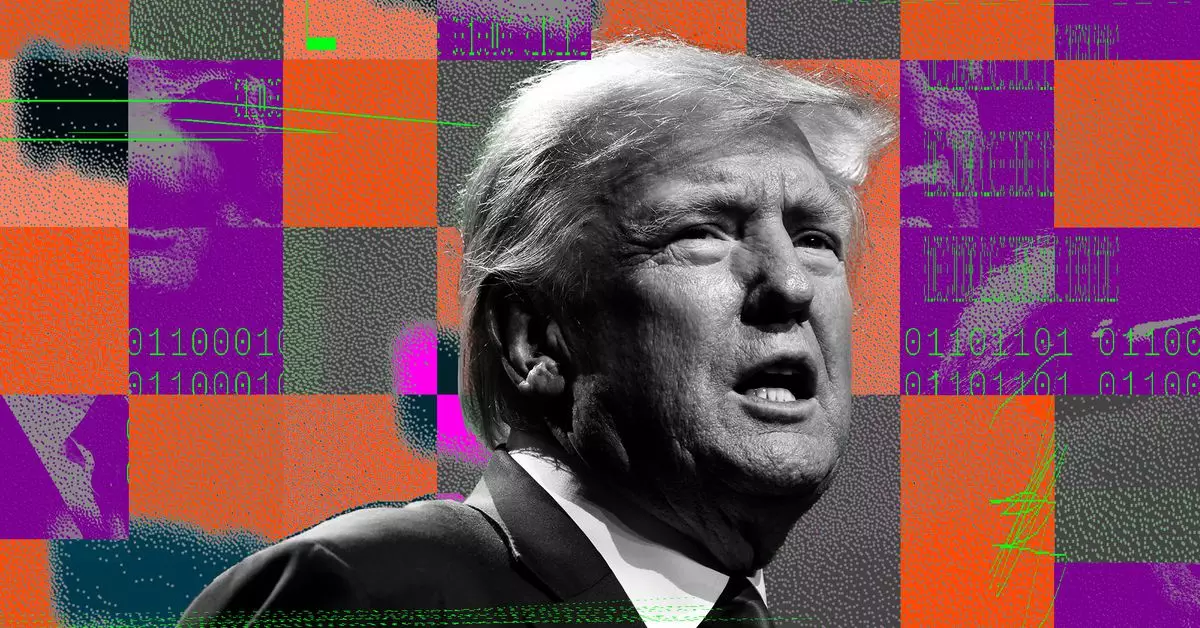In an era where the convergence of technology and politics is increasingly prevalent, the security of political campaigns has become a focal point of concern, particularly with the rise of cyber intrusions. Recently, the U.S. Department of Justice (DOJ) unveiled a significant development that underscores this phenomenon: the indictment of three Iranian nationals connected to a cyberattack against Donald Trump’s presidential campaign. This incident reveals not only the tactics employed in cyber warfare but also the broader implications such actions have on democratic processes.
According to the recently released indictment, these individuals, allegedly linked to Iran’s Islamic Revolutionary Guard Corps, executed the attack using social engineering and spear phishing. These tactics are characterized by their deceptive nature, where attackers masquerade as legitimate entities to coax sensitive information from victims. The indictment details how the hackers infiltrated the accounts of campaign officials, not through brute force but by crafting meticulous, misleading communications. This points to an alarming trend: the sophistication with which cybercriminals operate, leveraging psychological manipulation to further their agendas.
Moreover, the hackers went further to exploit their access by pilfering sensitive campaign documents and emails, later disseminating this information to media outlets. The implication here is twofold: first, it raises questions about the vulnerability of political campaigns to such infiltrations, and second, it reflects on the intersection of cyber operations with media practices.
In light of the attack, the DOJ has established a link between the perpetrators and Respina Networks, an Iranian internet service provider that allegedly facilitated their operations beyond the borders of Iran. Additionally, they utilized commercially available VPNs to mask their identity, creating various fake domains intended to mislead their targets. This aspect of the operation accentuates the need for heightened awareness regarding cyber hygiene, especially among individuals holding sensitive positions within any political organization.
The charges levied against the hackers—wire fraud, material support to a terrorist organization, and conspiring to access protected computers—illustrate the legal framework being employed to combat such cyber offenses. Assistant Attorney General Matthew G. Olsen’s statement underscores the severity of these actions as direct threats to the integrity of U.S. democratic processes.
Interestingly, although the campaign reported a breach, media institutions receiving the stolen data chose not to publish the contents. The subsequent disclosure by independent journalist Ken Klippenstein regarding a dossier related to vice presidential candidate JD Vance raises vital questions about the responsibilities of media in a digital age. This situation portrays a dynamic interplay between information dissemination, ethics, and cybersecurity challenges.
Additionally, the U.S. Treasury Department’s offer of up to $10 million for information about the hacking suspects indicates a proactive stance towards mitigating the effects of such cyber intrusions. As these cyber threats evolve, both the government and the public must remain vigilant, fostering a culture of awareness and resilience against potential attacks.
The indictment of these Iranian hackers serves as a stark reminder of the complexities involved in protecting political campaigns from cyber threats. As illustrated, the methods employed by cybercriminals are not only becoming more sophisticated, but they also pose a fundamental risk to the democratic fabric of society. Moving forward, it is imperative for both governmental bodies and political campaigns to enhance their cybersecurity measures, ensuring that the integrity of democratic processes remains intact in the face of increasing digital threats.

